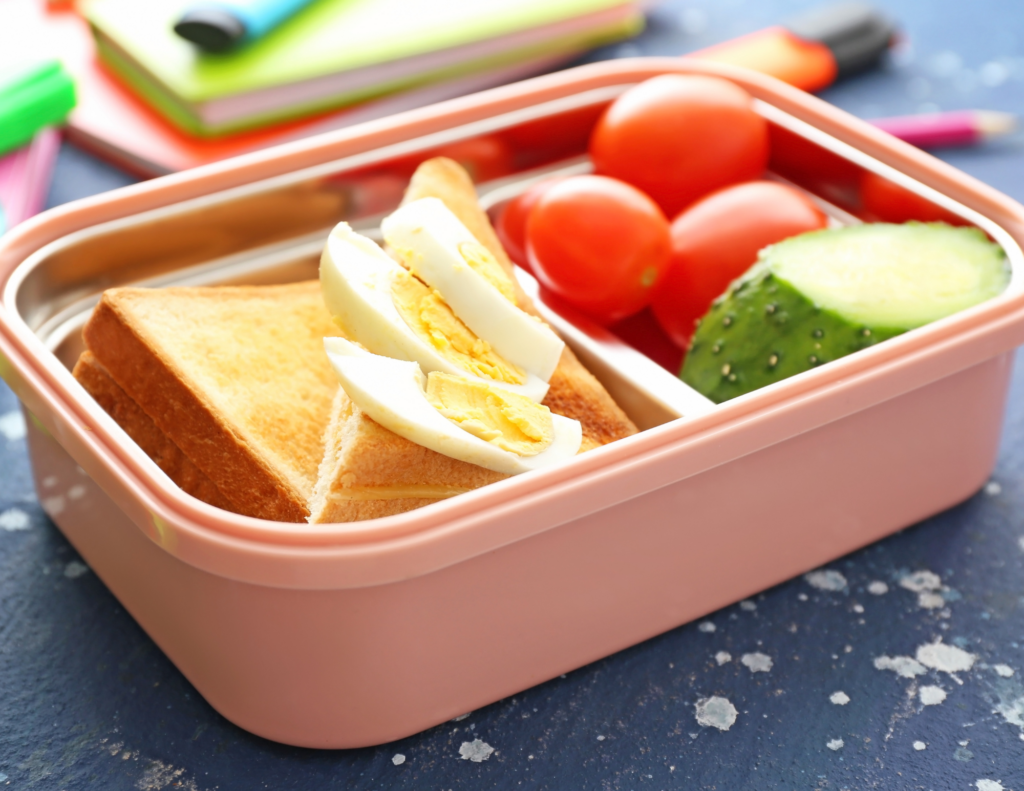Back to School: How Can My Child’s Lunch Be Made Low or Zero Waste?

Yes, it absolutely can! By making school lunches more eco-friendly, and by encouraging your kid to recycle and compost, you can significantly reduce your household’s waste. Some helpful guidelines are…
- Use reusable containers and utensils. (No chip bags, juice boxes, or food wrap. Also, no throw-away utensils; use metal, wood, bamboo, or durable plastic instead.) For liquids such as drinks or soups, try thermoses (insulated if they need to be kept hot or cold.) And of course, a reusable water bottle is a must, both for sustainability’s sake and to keep your child hydrated throughout the day.
- All food should be eaten, saved for another meal if nonperishable, or composted. (Not sure how to compost? Check out our composting events here.)
- Buy produce and other lunch materials with little or no packaging. Foods like apples, oranges, and unshelled nuts are wonderful because they come in their own natural wrapping. Consider visiting bulk grocers such as The Mighty Bin or the Ocean Beach People’s Food Co-Op.
An added bonus of paying attention to these guidelines is that you can determine what materials your child’s lunch containers are made of. For example, items made from #7 plastic often contains BPA, a chemical that has been linked to a variety of conditions, and should not be used as food or drink containers. By giving your child a lunch with no BPA plastic, reusable containers and good food, you’ll be helping to provide them with a healthy environment and good personal health!
Q&A:
Q: How can I keep lunch supplies from getting lost at school?
A: Make sure to label any large items with your child’s name and your phone number. Remind your kid that lunch supplies should come home with them.
Q: What if I can’t afford fancy reusable containers or to shop at a low-waste grocer?
A: All good! Wash out existing yogurt containers, plastic take-home containers from restaurants, sauce jars, and the like for free containers. As for grocery shopping, if you can buy certain items like cereal in larger containers while still keeping them fresh, you will be using less packaging overall. Items like apples and peppers can be bought in most grocery stores without any packaging.
For more food waste prevention guidelines, please visit https://www.foodwastepreventionweek.com/learn or register for one of our food waste prevention events.
